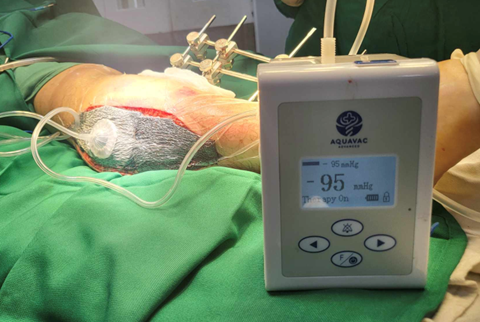HeaRTNovation
Microfluidic Paper-based Analytical Devices (µPADS) for the Detection of Diarrhea-causing Pathogens in Water
TECHNOLOGY GENERATOR
Nueva Vizcaya State University
Dr. Lori Shayne A. Busa
THE PROBLEM
Natural disasters frequently lead to health issues and increased mortality rates. Following such disasters, communities often find themselves compelled to seek refuge in evacuation centers that lack adequate sanitation, proper waste management, and access to safe drinking water. As a result, diarrhea outbreak due to E. coli-contaminated drinking water sources is a common post-disaster scenario. Hence, ensuring the availability of safe and clean drinking water in disaster-stricken areas and evacuation centers remains a critical concern.
The conventional method for detecting E. coli involves a labor-intensive four-stage process, including presumptive and confirmatory tests for total and fecal coliforms, as well as a confirmatory test specifically for E. coli. However, this method is costly, time-consuming, impractical for on-site testing, and necessitates trained personnel for execution.
THE SOLUTION
 The Nueva Vizcaya State University (NVSU) Bayombong Campus developed new and practical methods for water safety and quality monitoring. With paper as a low-cost and easily coated platform, the NVSU project team developed a microfluidic paper-based analytical device (μPAD) for the detection of diarrhea-causing pathogens in water. The µPADs have the capability to detect target pathogens at certain low concentrations and are expected to help mitigate risks of diarrheal outbreaks among communities affected by natural disasters. This PCHRD-funded technology is affordable, easy to perform, yields fast results, and suitable for onsite detection, hence offers a great alternative to the current four-stage detection process.
The Nueva Vizcaya State University (NVSU) Bayombong Campus developed new and practical methods for water safety and quality monitoring. With paper as a low-cost and easily coated platform, the NVSU project team developed a microfluidic paper-based analytical device (μPAD) for the detection of diarrhea-causing pathogens in water. The µPADs have the capability to detect target pathogens at certain low concentrations and are expected to help mitigate risks of diarrheal outbreaks among communities affected by natural disasters. This PCHRD-funded technology is affordable, easy to perform, yields fast results, and suitable for onsite detection, hence offers a great alternative to the current four-stage detection process.
TECHNOLOGY DEVELOPMENT STATUS
Field testing of the developed µPADs were conducted for the detection of waterborne pathogens. The technology is currently at Technology Readiness Level (TRL) 4.
CURRENT NEEDS
The technology owners are actively seeking funding opportunities for the continuous development of the microfluidic paper based analytical devices. Interested parties may send letters of intent to contact details provided below.
CONTACT DETAILS
Nueva Vizcaya State University – Intellectual Property and Technology Business Management (IP-TBM)
NVSU Bayombong Campus, Bayombong
nvsu.ipro@gmail.com




